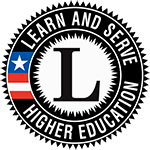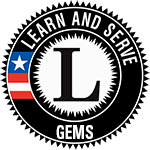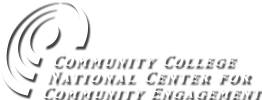2000 through 2003
Global Engagement of Multifaceted Stakeholders (GEMS) Project
Funded by the Corporation for National & Community Service


Miami, FL
This service-learning partnership between Miami Dade Community College (MDCC), Barry University (BU) and the BAME Development Corporation (BAME) focused on computer literacy and bridging the digital divide in Miami’s Overtown neighborhood.
The partnership not only provided access to the internet and other technology for many of Miami’s poorest families but it also provided education for faculty at MDCC and BU who were preparing future educators in the teacher preparation program. By educating these faculty, the project sustained a community focus that provided equal access to technology for the poor and worked to find models that will help eliminate the inequality present in our educational system.
Honolulu, HI
The University of Hawai’i at Manoa (UH), Windward Community College (WCC) and James B. Castle High School (CHS) partnered in a local community where the highest concentration of Hawai’ian school-age children live. The project was developed to identify and implement programs that aim to improve the standard of living for native Hawai’ians in that area, many of whom fall within the socio-economic poverty level.
The partnership’s four-point plan focused on developing youth. It included pre-service teacher education, youth literacy and reading, Polynesian cultural education and career/college education. The project’s goal was to improve the standard of living for all native Hawai’ians through the development of youth – creating a well-educated, motivated, culturally inspired citizenry that seeks the continual improvement of their culture’s socio-economic status.
Crownpoint, NM
Focused on providing local youth with necessary life skills, as well as access to further education, Crownpoint Institute of Technology (CIT), University of New Mexico – Gallup (UNM) and Wingate High School (WHS) committed to work together on this vision: to bridge the cultural and institutional barriers that often limit access to education, exchange and community renewal.
The project included 1) vocational education, through agricultural studies and veterinary sciences; 2) academic development with adult basic education and tutoring; and 3) Navajo cultural education through an oral history project with Navajo elders. Through these projects, youth at all three institutions engaged their community through meaningful service-learning.
Mesa, AZ
As a compliment to the spirit and concept of the GEMS grant, Mesa Community College (MCC) focused on developing models of civic engagement in service-learning. Working with all ten Maricopa colleges and the district office, MCC implemented service-learning projects, institutional outreach events and public forums to advance the need to develop and inform service-learning programs with civic education initiatives in mind.
MCC gave Maricopa Community College District faculty development grants to encourage curricular development that considered civic-engagement, hosted training and technical assistance events at MCC and other large districts throughout the U.S. to educate faculty and administrators about service-learning and civic engagement, and held public forums in partnership with local government to involve all Maricopans in the project.
Assistance in the United States Territories
The Center directed money and other resources towards a CNS stated priority to provide service-learning outreach to the United States territories: Guam Community College, Northern Marianas College, University of the Virgin Islands, and American Samoa Community College. This program included a three pronged approach over the three years of the grant: 1) a series of training and technical assistance visits to at least three U.S. territories, 2) implementation grants to at least three community colleges in U.S. territories in years two and three, and 3) ongoing outreach efforts that will work to stimulate better networking and communication between the territories and the states.
Training and Technical Assistance
The GEMS project provided comprehensive and individual training and technical assistance to community colleges whose service-learning programs were at various stages of development. CCNCCC worked with leading faculty and practitioners in community colleges across the United States. Based on the needs expressed by campuses and Campus Compact Network Offices, the Center helped identify and clarify needs, as well as provided the trainer and curriculum to meet those needs.
In addition to individual site visits and trainings on campuses, the Center’s TTA program developed a leadership institute, which addressed a variety of critical elements such as project management, leadership, strategic planning, intercultural communication and collaboration.
Publications
Lastly, GEMS brought the lessons, experience and research of all institutions together in publications that looked at all three years of the GEMS grant and examined the unique aspects of each partnership and each institution’s work regarding service-learning and diversity.
Evaluation
Kapi’olani Community College in Hawaii was awarded the Center’s evaluation contract to be conducted by Dr. Tanya Renner, who also conducted evaluation for the Center’s 2+4 = Service on Common Ground grant. She developed evaluation instruments specific to the GEMS project and collect data from participants. She used various modes of collecting data including surveys and interviews. Dr. Renner provides the Center with six major services: 1) consultation with Center staff and grantees to identify evaluative needs, 2) development of tools and matrices, 3) collection of contact information for the various constituencies participating in or benefiting from the grant, 4) collecting data from various constituencies, 5) analysis and compilation of data into an evaluative report and 6) consultation with grantees as they developed their own site specific evaluative plans.
Dr. Renner also presented at various local, state and national venues about the GEMS grant and its evaluation and assessment plan. Like other grantees, her involvement served to provide a national model for service-learning research and assessment, as well.
This material was based upon work supported by the Community College National Center for Community Engagement through a grant from the Corporation for National and Community Service under the Learn and Serve America Program. Opinions or points of view expressed in this document are those of the authors and do not necessarily reflect the official position of the Community College National Center for Community Engagement, the Corporation, or the Learn and Serve America Program.


